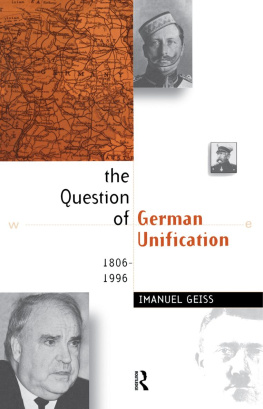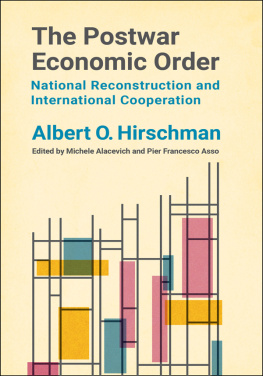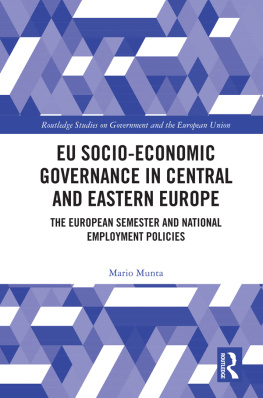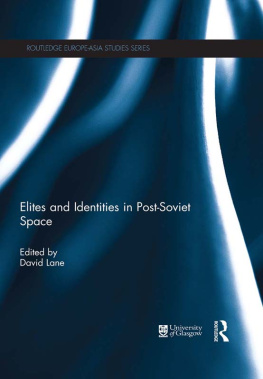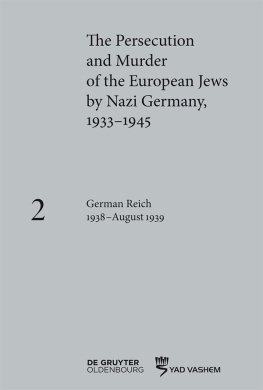
The Construction of a National Socialist Europe during the Second World War
Throughout the Second World War, the term Europe featured prominently in National Socialist rhetoric. This book reconstructs what Europe stood for in National Socialist Germany, analyses how the interplay of its defining elements changed dependent on the war, and shows that the new European order was neither an empty phrase born out of propaganda, nor was it anti-European. Tying in with long-standing traditions of German European, vlkisch , and economic thinking, imaginations of a New Order became a central category in contemporary political and economic decision-making processes, justifying cooperation as well as exploitation, violence, and murder.
Raimund Bauer holds a masters degree in Economic and Social History, Modern History and Political Sciences from the University of Mannheim and received his PhD from the Department of Politics, History, and International Relations at Loughborough University. His research interests and his publications focus on the intersections of ideas, politics, and economics in the modern history of Germany and Europe.
Routledge Studies in Second World War History
The Second World War remains today the most seismic political event of the past hundred years, an unimaginable upheaval that impacted upon every country on earth and is fully ingrained in the consciousness of the worlds citizens. Traditional narratives of the conflict are entrenched to such a degree that new research takes on an ever important role in helping us make sense of World War II. Aiming to bring to light the results of new archival research and exploring notions of memory, propaganda, genocide, empire and culture, Routledge Studies in Second World War History sheds new light on the events and legacy of global war.
Recent titles in this series
Intellectual Collaboration with the Third Reich
Treason or Reason?Edited by Maria Bjrkman, Patrik Lundell, and Sven Widmalm
German-occupied Europe in the Second World War
Edited by Raffael Scheck, Fabien Thofilakis, and Julia Torrie
British Exploitation of German Science and Technology, 19431949
Charlie Hall
Unknown Conflicts of the Second World War
Forgotten Fronts
Chris Murray
A New Nationalist Europe Under Hitler
Concepts of Europe and Transnational Networks in the National Socialist Sphere of Influence, 19331945
Edited by Johannes Dafinger and Dieter Pohl
The Swedish Jews and the Holocaust
Pontus Rudberg
https://www.routledge.com/Routledge-Studies-in-Second-World-War-History/book-series/WWII
The Construction of a National Socialist Europe during the Second World War
How the New Order Took Shape
Raimund Bauer
First published 2020
by Routledge
2 Park Square, Milton Park, Abingdon, Oxon OX14 4RN
and by Routledge
52 Vanderbilt Avenue, New York, NY 10017
Routledge is an imprint of the Taylor & Francis Group, an informa business
2020 Raimund Bauer
The right of Raimund Bauer to be identified as author of this work has been asserted by him in accordance with sections 77 and 78 of the Copyright, Designs and Patents Act 1988.
All rights reserved. No part of this book may be reprinted or reproduced or utilised in any form or by any electronic, mechanical, or other means, now known or hereafter invented, including photocopying and recording, or in any information storage or retrieval system, without permission in writing from the publishers.
Trademark notice : Product or corporate names may be trademarks or registered trademarks, and are used only for identification and explanation without intent to infringe.
British Library Cataloguing-in-Publication Data
A catalogue record for this book is available from the British Library
Library of Congress Cataloging-in-Publication Data
Names: Bauer, Raimund, author.
Title: The construction of a National Socialist Europe during the Second
World War: how the new order took shape / Raimund Bauer.
Description: New York, NY: Routledge, 2020. | Series: Mass violence in
modern history | Includes bibliographical references and index. | Identifiers: LCCN 2019025276 (print) | LCCN 2019025277 (ebook)
ISBN 9781138607736 (hardback) | ISBN 9780429883415 (epub) |
ISBN 9780429883408 (mobi) | ISBN 9780429883422 (adobe pdf)
Subjects: LCSH: National socialism. | GermanyRelationsEurope. |
EuropeRelationsGermany. | World War, 1939-1945Social
aspectsEurope. | World War, 19391945Economic aspectsEurope.
Classification: LCC DD256.8 .B38 2020 (print) | LCC DD256.8 (ebook) |
DDC 940.53/1dc23
LC record available at https://lccn.loc.gov/2019025276
LC ebook record available at https://lccn.loc.gov/2019025277
ISBN: 978-1-138-60773-6 (hbk)
ISBN: 978-0-429-46703-5 (ebk)
Typeset in Times
by Deanta Global Publishing Services, Chennai, India
Contents
PART I
Dreaming of a New Order: Imaginations of Europes future during the interwar period
PART II
Planning a New Order: Imaginations of Europe during wartime
PART III
Creating a New Order: From imagination to reality in the crucible of war
When the Europakrnzchen met for the first time in the Hotel Esplanade in Berlin, on 16 December 1943, Hans Kehrl, head of the Planning Office of the Ministry of Armaments and War Production, opened the meeting with a recapitulation: he reminded the attendees of the birth of the European idea [in the] summer of 1940, but regretted that cooperation within the European economic community still left a lot to be desired.
These examples of National Socialist European rhetoric are far from being isolated cases in the history of the Third Reich during the Second World War. In fact, the conquests of the National Socialist regime, its occupation policies, its crimes and atrocities, and even its downfall were accompanied by constant Europe-centred background noise. After the defeat of France, many Germans expected the creation of a European Groraumwirtschaft, expressed the need for a reorganisation of Europe, and advocated a New European Order. With the attack on the Soviet Union in June 1941, this vocabulary was complemented by anti-communist phrases such as Europes crusade against Bolshevism, the vlkisch notion of a Greater Germanic Empire, and fantasies of winning the East as Europes granary. In the end, impending defeat additionally turned Europe into the imagination of a fortress, a war-economic fighting community, and a solidaristic defensive front which was waging war for its very existence.
In German thinking, therefore, the war and the idea of creating a new European order were closely linked. However, this New Order was not one single and clear-cut master plan for a National Socialist Europe, but a notion, which, depending on the point in time and the person who imagined it, took on different forms. In 1940, references to Europe sounded differently than in 1943, and while it was a primarily vlkisch concept for some, other perspectives on Europe were dominated by economic concerns.


